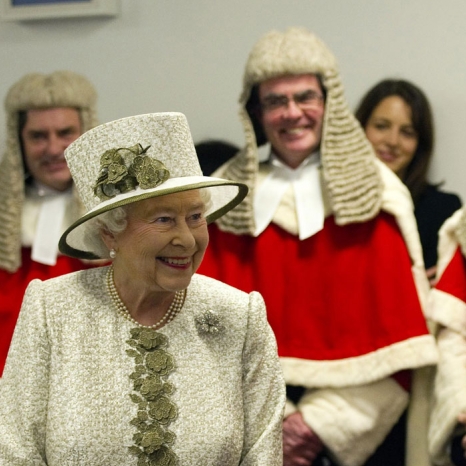Britain has always been distinguished by a rather mild attitude towards the cryptocurrency industry, and now it has completely recognized digital currencies as property.
The relevant decision was made by the High Court of England and Wales, considering the case of the theft of $ 1 million in cryptocurrency . During the process, the question arose of how to classify Bitcoin, and the court decided to recognize it as property.
This precedent can be used in the future as the basis for all subsequent cases related to cryptocurrency. In some countries, owners of digital assets cannot rely on full protection by the state, since bitcoin is simply not considered legal property.
The court examined the case of Liam Robertson, head of Alphabit, a cryptocurrency fund that manages assets in the amount of $ 195 million. Last month, Robertson lost $ 1 million of bitcoins. The London Commercial Court issued an order to safeguard assets, ordering Coinbase to temporarily “freeze” stolen funds. Thus, the court, for the first time in history, recognized bitcoin as property or property, in a legal sense.
Until now, British law has seen Bitcoin as “data,” not as property. Thus, the owners could not claim their rights in case of theft. However, Robertson's lawyers, Mark Jones and David Heaton, said that bitcoins are his property. In their opinion, since the theft of bitcoins did not entail the transfer of property rights, Robertson still “owns” the stolen bitcoins.
Although a court ruling on asset freezing is a preliminary decision, Robertson's lawyer Mark Jones said in an interview with Decrypt that it sets a legal precedent.
He noted :
“If someone finds himself in similar circumstances, he will be able to refer to this case and tell the judge:“ Your Honor, we are not asking you to make some unheard-of decision — look what decision the court made in the Robertson v. Unknown case.
Robertson himself explained that in early July he had a telephone conversation with the head of the algorithmic trading fund. Impressed by the product of this company, he agreed to pay more than 100 bitcons for it. According to Robertson, the phone was tapped. Upon learning that Robertson intends to forward bitcoins to the head of the fund’s investment department, the criminals created a clone of the head’s email address, after which they sent Robertson a letter asking him to transfer funds to the specified bitcoin wallet , which he did.
The next day, July 6, the algorithmic trading fund discovered the fact of hacker penetration and warned Robertson about the scam. But it was too late – 80 bitcoins were already on the Coinbase exchange, 15 on the LocalBitcoins.com site , and another 5 in the cold storage wallet.
On Tuesday, August 20, Coinbase returned 80 Bitcoins to Robertson. His lawyers threatened a hacker who panicked and returned the funds. According to Robertson, his lawyers intend to act in a similar way to return the remaining 15 bitcoins from LocalBitcoins.com and 5 bitcoins from a cold storage wallet. However, Jones noted, it is much more difficult to do this, since it is not so simple to withdraw funds from a wallet that is not stored on a crypto exchange .
If Robertson’s lawyers fail to force the hacker to return the bitcoins, they will first have to identify the owner of the wallet, and then force him to return the funds at the direction of the court – according to Robertson, this is a long and expensive process.
However, these legal battles have already shown that the legal system, whose history spans hundreds of years, can change in accordance with the spirit of the times. The High Court intends to consult with a working group of lawyers, supported by the government, in the near future. Its members are busy deciding whether Bitcoin can be considered property. Their report is expected to be published before the end of August.
Publication date 08.24.2019
Share this material on social networks and leave your opinion in the comments below.


